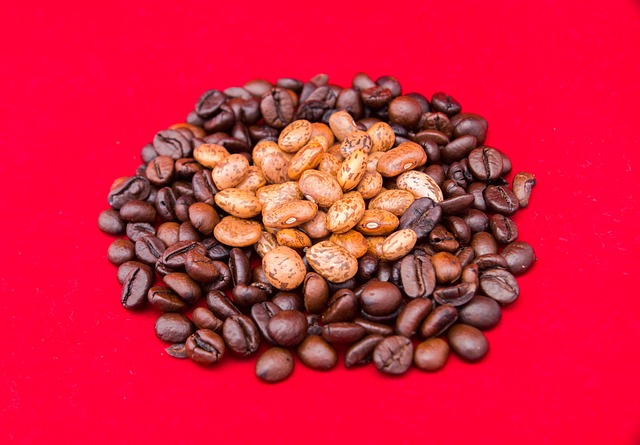What Are Superfoods and Super-Nutrients? When it comes to weight loss, experts point to two fundamental types of foods that can be termed as “superfoods” for maintaining weight: fruits and vegetables. The element that makes them particularly effective is fiber. Similarly, protein stands as a “super-nutrient” with proven abilities to suppress appetite.
Fun Fact: Did you know that high-fiber foods like fruits and vegetables take longer to digest, making you feel fuller for a more extended period?
Why Are Fruits and Vegetables Essential for Weight Loss?
Fruits and vegetables are low in calories but high in essential nutrients. This characteristic makes them ideal for any weight loss plan, as they can provide necessary vitamins and minerals without the added weight gain.
Fun Fact: Citrus fruits like oranges and grapefruits are not only rich in fiber but also contain vitamin C, which aids in fat burning.
Why is Fiber Considered a Super-Nutrient for Weight Loss?
Fiber holds the magic key to keeping fruits and vegetables as the staple superfoods for weight loss. It not only provides bulk but also improves digestion and keeps you full, which is crucial for weight management.
Fun Fact: Some soluble fibers, such as those found in oats and beans, can help lower blood cholesterol levels.
What are the Types of Fiber and How Do They Differ?
There are two types of fiber: soluble and insoluble. Soluble fiber dissolves in water and is beneficial for lowering cholesterol and stabilizing blood sugar. Insoluble fiber, on the other hand, aids in digestion and can help prevent constipation.
Fun Fact: Apple peels contain both soluble and insoluble fiber, making them a balanced choice for digestive health.
How Does Protein Contribute to Weight Loss?
Protein is another powerhouse nutrient for weight loss. Scientific evidence increasingly supports the idea that protein can help to reduce appetite. Additionally, protein has the added benefit of slightly boosting your metabolism.
Fun Fact: Foods like eggs and chicken are protein-dense and can keep you full for longer, thereby reducing the urge to snack between meals.
How Do Different Protein Sources Compare?
While animal proteins like meat and dairy are high in essential amino acids, plant-based proteins like legumes and grains are less dense in calories and fat. Mixing different protein sources can provide a balanced nutrient profile.
Fun Fact: Quinoa is one of the few plant-based proteins that contain all nine essential amino acids.
Can All Proteins Aid in Weight Loss?
Not all proteins are created equal when it comes to weight loss. Some can be calorie-dense and contribute to weight gain if consumed in excess. Hence, choosing your protein wisely is critical for effective weight management.
Fun Fact: Plant-based proteins like lentils and chickpeas are not only rich in protein but also have fewer calories compared to animal-based proteins.
How Can You Incorporate Protein in Your Daily Diet?
Protein can be incorporated into every meal. From protein-packed breakfasts like Greek yogurt and omelets to lunches that feature grilled chicken or tofu, there are endless possibilities.
Fun Fact: Consuming protein-rich snacks like almonds or cottage cheese can reduce cravings and improve weight loss outcomes.
What Makes Green Tea a Weight Loss Superfood?
Green tea has garnered attention for its potential role in weight loss. Researchers believe that catechins, a type of phytochemical, in green tea stimulate the body to burn calories and slightly reduce body fat.
Fun Fact: Matcha, a concentrated form of green tea, contains more catechins than traditional green tea and is also considered effective for weight loss.
Is Green Tea Safe for Everyone?
While green tea is generally safe and beneficial, excessive consumption can lead to issues like insomnia due to its caffeine content. It’s always best to consult a healthcare provider for personalized advice.
Fun Fact: Green tea is also rich in antioxidants, which can improve your overall health in addition to aiding in weight loss.

How Can Soup Aid in Weight Loss?
Soups, especially those that are broth- or tomato-based, are excellent appetite suppressants. They can help you feel fuller and eat less during your main course.
Fun Fact: Chilled soups like gazpacho can be a refreshing and low-calorie option for hot summer days.
What Types of Soups Are Most Effective for Weight Loss?
Clear soups with plenty of vegetables are your best bet for weight loss. Avoid cream-based soups, as they can be high in calories and fats.
Fun Fact: Bone broth is rich in protein and minerals, making it another excellent soup base for weight loss.
Are All Salads Good for Weight Loss?
Low-calorie green salads can act as your secret weapon in fighting weight gain. However, not all salads are low-calorie. Be cautious of salads loaded with croutons, high-fat dressings, and cheese.
Fun Fact: Leafy greens like spinach and kale are rich in nutrients like iron and can be excellent bases for a low-calorie salad.
What Should You Include in a Weight-Loss-Friendly Salad?
Adding protein sources like grilled chicken or tofu and other fiber-rich vegetables can enhance your salad’s weight loss benefits. Stick to low-calorie dressings like vinaigrettes.
Fun Fact: Avocado can add healthy fats to your salad, making it more satisfying and nutritious.
Why Is Yogurt Considered a Superfood for Weight Loss?
Yogurt, particularly the light variety, is an excellent dairy product for weight loss. It offers a powerful combination of protein and carbohydrates that can help fight off hunger pangs.
Fun Fact: Greek yogurt is higher in protein than regular yogurt, making it an even better choice for weight loss.
Are All Yogurts Created Equal?
Be cautious when selecting yogurt; some are loaded with added sugars. Opt for varieties that are low in sugar and high in protein for the best weight loss benefits.
Fun Fact: Fermented foods like yogurt can improve gut health, which is linked to weight management.
How Do Beans Help in Curbing Appetite?
Beans offer a brilliant blend of fiber and protein. This combination makes you feel full for a more extended period, aiding in reducing your appetite between meals.
Fun Fact: Black beans are rich in antioxidants, which provide an added health benefit apart from weight loss.

How Can You Include Beans in Your Diet?
Beans can be added to salads, soups, or even made into a dip like hummus. They are a versatile ingredient that can be easily incorporated into various meals.
Fun Fact: Lentils cook faster than most other beans and are rich in both protein and fiber.
Why Is Water Essential for Weight Loss?
Water serves as the lifeblood of your body and is a no-calorie beverage that can help you feel full. It’s a natural way to suppress your appetite when you feel hungry.
Fun Fact: Drinking cold water can slightly boost your metabolism as your body works to bring the water to body temperature.
What Are Some Creative Ways to Consume More Water?
Infused waters with natural flavors from fruits or herbs can make hydrating more enjoyable. You can also consume water-rich foods like cucumber and watermelon to increase your water intake.
Fun Fact: Coconut water can be a hydrating and low-calorie alternative to sugary drinks.
Can Whole-Grain Cereal Contribute to Weight Loss?
High-fiber, whole-grain cereals can be a fantastic addition to your diet, providing fiber and nutrients while aiding in weight loss. It’s an easy way to include whole grains in your daily diet.
Which Cereals Are Best for Weight Loss?
Opt for cereals that list whole grains as the first ingredient and are low in added sugars. Brands that offer high-fiber options can be particularly effective for weight loss.
Fun Fact: Oats, a common ingredient in many cereals, contain beta-glucans which have been shown to reduce cholesterol levels.
How Can We Optimize Our Weight Loss Strategies?
The journey to weight loss is not solely about calorie-cutting; it’s also about choosing foods that offer nutritional benefits and keep you full longer. Superfoods like green tea, yogurt, and beans, rich in super-nutrients like fiber and protein, can be the game-changers you’re looking for in your weight loss strategy.
Fun Fact: Combining superfoods in a balanced meal can create a synergistic effect, enhancing their individual benefits for even better weight management.
Armed with this guide, you are now better equipped to make smarter choices that will significantly impact your weight loss efforts positively. The inclusion of these superfoods and super-nutrients can be a pivotal element in achieving your weight loss goals. By incorporating the tips and insights from this article, you can learn about the power of superfoods and super-nutrients to unlock your weight loss potential.

